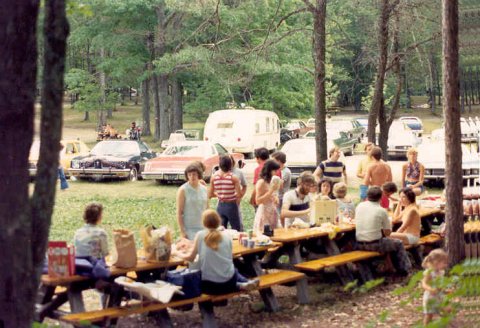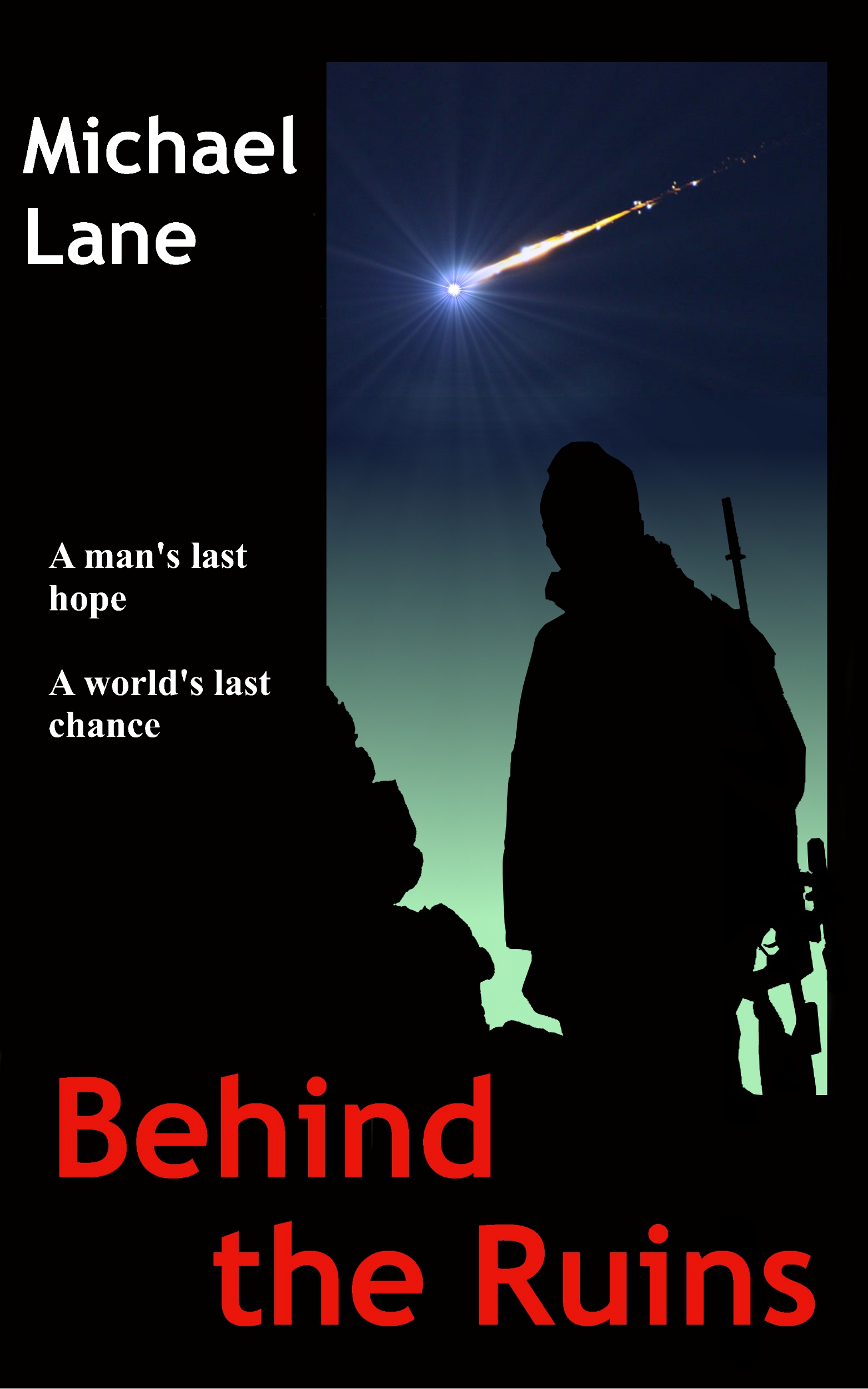 |
| Photo: ghs1965.com |
“Aunt Lila, don’t say ‘queer’. People will think you mean ‘gay’.”
Aunt Lila looked down at her paper plate where a piece of angel food cake soaked in the mixed juices of coleslaw and Boston baked beans like an absorbent boom in a hazardous spill. “Yes, Gay is queer, isn’t she?” she answered seriously, looking at Aunt Gay through horn-rimmed glasses, “but we love her.” Then she turned to me and asked, “Have you seen Carole yet, Dear?”
“Yeah, they got here about half an hour ago. Parked behind me.” I took the last bite of my hotdog.
“You’ve spoken with her?” Aunt Lila persisted. Aunt Gay looked away and busied herself with her chicken.
“Not actually spoken with her yet, no,” I answered.
“You’ll get a chance now,” said Aunt Gay after dabbing her lip demurely with her napkin. “We all will. She’s coming to us.”
Aunt Lila brightened. “Delightful!” she chirped.
Carole walked up the slope of the rough lawn, making her way between the tables, followed by someone I didn’t recognize. When she arrived and had kissed us all, she introduced the stranger as “my nephew Jack” and immediately apologized that she couldn’t stay “or Vern will burn my steak for sure.”
Aunt Lila rose and began making faces at Aunt Gay. Aunt Gay smiled politely and went back to her chicken. Aunt Lila’s faces became increasingly exaggerated. Jack watched with unmasked amusement while I played with my empty plate. Aunt Gay continued smiling and eating her chicken, until Aunt Lila shook her head and walked away.
“Aunts, sometimes!” Aunt Gay burst out in a whisper.
Jack laughed and sat down.
“I’m an old maid, you see,” I said to Jack. “I’m twenty-five years old, and if I don’t get married soon, Aunt Lila and Carole will turn into frogs. Sorry they dragged you all the way out here.”
“No, it’s lovely,” said Jack, scanning the old farmhouse, the newly-mown hayfield, the hardwood forest and the horizon of little pine-topped mountains. He turned to Aunt Gay and said, “I’m sorry, I didn’t get your name.”
Aunt Gay’s hazel eyes twinkled. “I’m Gay and my sister’s fruity.”
Jack looked puzzled.
“My name is Gay,” she explained, “and my sister Georgia, we used to call Peaches.”
“So she’s fruity,” said Jack. “I get it. And you’re Rain,” he said to me. “Georgia is your mom, so Gay must be--your aunt?” He pronounced ‘aunt’ like ‘ant’.
We nodded.
“Place really is something,” he said, looking around again.
“It’s been in the family for five generations,” I replied proudly.
“You’re kidding.”
“My grandfather had this dream of a place where the whole family could get together," I continued, "Sort of give the kids some roots, a feeling of heritage, and no one would be turned away. His definition of family included pretty much anybody who wanted to be part of it.”
“And here it is,” said Jack in a congratulatory tone, but I thought I saw a frown on his face.
“We almost lost it to the bank in the Thirties,” said Aunt Gay. “The Depression, you know. But we managed, with everyone pulling together, and it’s still here.”
“Oh, this is terrible,” Jack muttered.
“What’s wrong?” I asked, and Aunt Gay touched him lightly on the shoulder.
 |
| Photo: reuther.wayne.edu |
“Look it over?” I repeated stupidly.
“Please don’t shoot the messenger. I’m supposed to assist in putting this property on the market.”
“No...” Aunt Gay whispered, blinking hard and staring at the red-stained table top. Her hand on Jack’s shoulder had tensed into a grip. She swallowed. “No,” she said softly, “it’s hardly your fault.”
No one spoke for a long time. Breezes blew at the plates in our hands, rustled the branches of the nearby trees.
“We can fight this,” said my mother’s voice. We all looked up and saw her standing behind me.
“You heard?” said Aunt Gay.
Mom nodded. “I’m Georgia,” she said, extending a hand to Jack.
“Jack Neri.”
“Bertrand’s got the deed,” said Mom, sitting down next to me, “but that’s all he has. The family will come together again. I know they will. We just need to start by planning.”











.jpg)

















